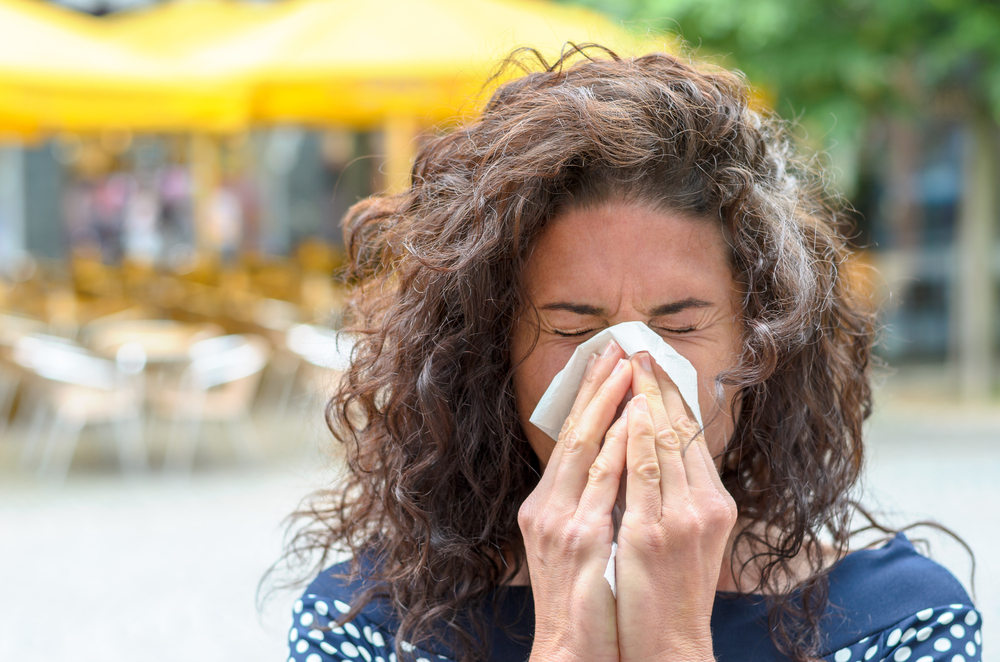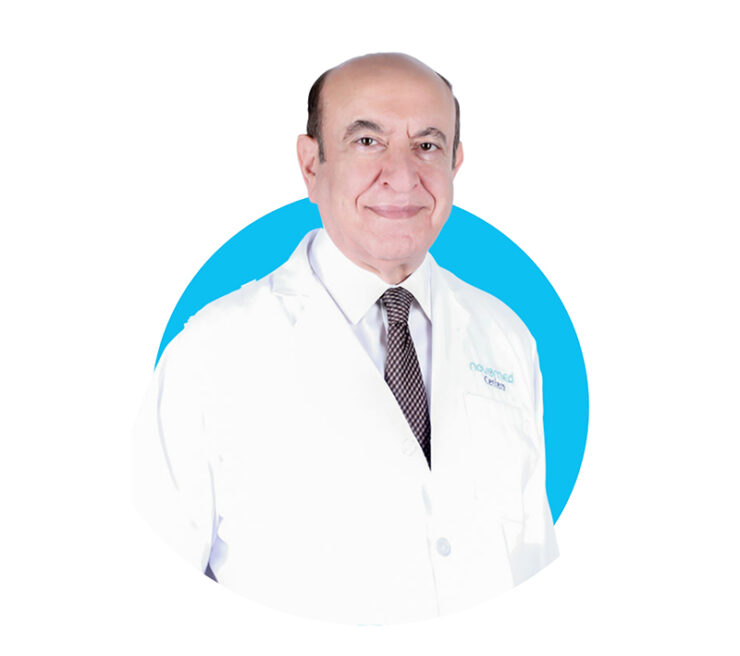Allergic Rhinitis (Hay Fever) Treatment in Dubai and Al Ain
Overview
The bones around our eyes, nose and cheeks contain hollow chambers to help filter, heat and moisten inhaled air, as well as allowing us to make certain sounds. These chambers are called the sinuses. The different sets of sinuses are named after the bones in which they are found. The four paired chambers surrounding the nasal cavity are called the paranasal sinuses. The frontal sinuses can be found above the eyes, while those below the eyes are called maxillary sinuses. The sphenoidal sinuses are behind the eyes, while the ethmoidal sinuses are between the eyes.
Allergic rhinitis, also known as hay fever, is when you have an allergic reaction to allergens, including pollen, dust mites, pet dander, mold, and insects. This condition can lead to bothersome symptoms such as itchy eyes, sneezing, and sinus pressure.
When allergic rhinitis is left untreated, it can become chronic and cause complications such as persistent nasal inflammation and blockage. For that reason, you should seek medical help to learn how to avoid triggers and find the best treatment for your condition.

What are the symptoms of allergic rhinitis?
Symptoms of hay fever can arise at any time of year. Outdoor allergies (such as pollen allergies) are at their worst in the spring, summer, and early fall. Indoor allergies (such as allergies to pet dander) are at their worst in the winter because that is when people spend more time indoors. Unlike the common cold, hay fever comes with no temperature, appears shortly after being exposed to allergens, and lasts as long as you are exposed to these allergens.
Hay fever symptoms include:
- Blocked or runny nose
- Sneezing
- Post-nasal drip
- Dark circles under the eyes, and/or swollen eyelids
- Red, itchy eyes
- Itchy throat, mouth, face and ears
- Sore throat
- Dry cough
- Headaches and/or facial pain or pressure
- Partial loss of hearing, smell and taste
- Fatigue
What are the causes of allergic rhinitis?
Your immune system misinterprets a harmless airborne chemical as dangerous when you have hay fever and produces antibodies to this chemical. These antibodies tell your immune system to release chemicals like histamine into your bloodstream when you come into contact with the material, leading to a reaction that causes hay fever symptoms.
How is allergic rhinitis diagnosed?
During your consultation, the doctor will review your medical history, ask you about your symptoms, and perform a physical examination. They may order a blood test to determine the number of allergy-causing antibodies known as immunoglobulin E (IgE) or a skin prick test to establish which allergens are causing your symptoms. The skin prick test involves puncturing your skin with a needle and applying a little sample of different allergies to see which one will cause an allergic reaction.
How is allergic rhinitis treated?
The most obvious first step in addressing allergic rhinitis is to avoid the allergens. This could be simple if there is only one main allergen. Avoiding dust mites, for example, is possible if you implement strict control measures. Apps and weather advisory services also warn of dust storms and give counts for other allergens. You could limit pollen and exposure to outdoor mold by keeping the windows in your car and home closed. However, unless you never leave your house, it is unlikely that you could avoid all environmental allergens. For this reason, our allergists will most likely advise a course of Immunotherapy for you. Over a period of time, you will be injected with the allergen in order for your body to build up a resistance to it.
If complete avoidance of your allergen is impossible, you could consider medication or Immunotherapy. There are prescription medicines with minimal side effects that could help you. The newer antihistamines don’t cause much drowsiness, for example. Prescription nasal cortisone/steroid sprays are usually more effective than allergy pills. Note, however, that these steroid-type nasal sprays are different from ‘systemic’ steroids, which do have significant side effects.
Some patients don’t respond well to medications, and some simply don’t want to take medication daily. For those people, a course of allergy shots, also known as Immunotherapy, is a great option. Allergy injections are very effective. They can be an alternative or given in addition to the other medications. Although they may take three to six months to start working, these injections provide long-lasting relief of symptoms and mean less reliance on medicines.
Schedule your appointment at Novomed today!
Through testing, Novomed’s allergy specialists will be able to determine if your symptoms are related to allergens such as mold spores, pollen, dust mites, animals, etc. Whatever the cause, they will work with you to come up with a personalized treatment plan.
Book your appointment today with one of our expert allergists by calling toll-free 8006686 or clicking the chat icon at the bottom of the screen.






